Many great movies and tv series have been made about historical figures and events. Historical dramas offer us a window into the past and connect us to legendary figures and history. While we may be familiar with famous figures and the stories of their lives, seeing them portrayed by talented actors adds new dimension to their character. Filmmakers and actors breath life into these historical figures, depicting major events in their lives, including the delivery of iconic speeches that they have given.
Many of us are familiar with legendary speeches from the 20th century, like FDR’s address after Pearl Harbor and Churchill’s resolve to “fight on the beaches.” Another familiar classic is Lincoln’s Gettysburg Address. Yet, even lesser-known speeches, like Woodrow Wilson’s declaration of war against Germany or Lincoln’s second inaugural address, are powerful and influenced history, and their cinematic representations make for very compelling moments in film. (These are the greatest wartime speeches in history.)
To compile a list of the finest portrayals of real speeches in movies and TV (by actors), 24/7 Tempo reviewed video clips on YouTube and referenced sources such as the National Archives, IMDb, and American Rhetoric. While not exhaustive, this list showcases some of the most celebrated and important speeches ever depicted on film. In certain cases, the real-life addresses have been shortened and occasionally modified for film purposes. There are no speeches from Dr. Martin Luther King Jr. on this list due to copyright by his estate.
Knute Rockne, All American (1940)
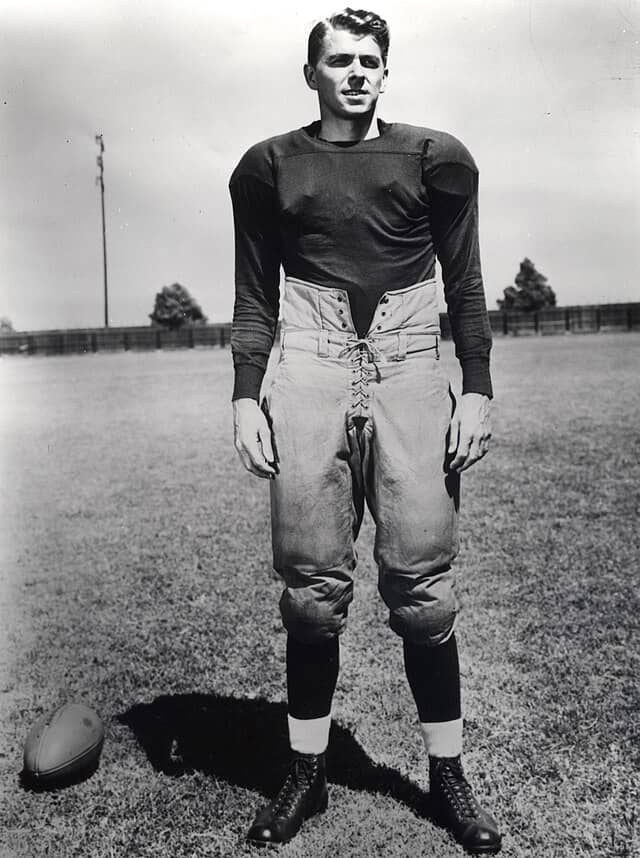
1940 Still of Ronald Reagan from film Knute Rockne: All American
- Delivered by: Ronald Reagan playing George Gipp
- Speech: “Win one for the Gipper”
The famous phrase “Win one for the Gipper,” owes its origin to the renowned Notre Dame football coach Knute Rockne. In 1928, as his team was losing at halftime during a game against Army at Yankee Stadium, Rockne tried to inspire his team by recounting the story of the dying words of Notre Dame’s best player ever, George Gipp. The stirring speech was immortalized in the 1940 film “Knute Rockne, All American,” featuring Ronald Reagan in the role of Gipp. Notably, Notre Dame won the game, and Reagan, later a prominent political figure, continued to use the phrase throughout his career.
Pride of the Yankees (1942)
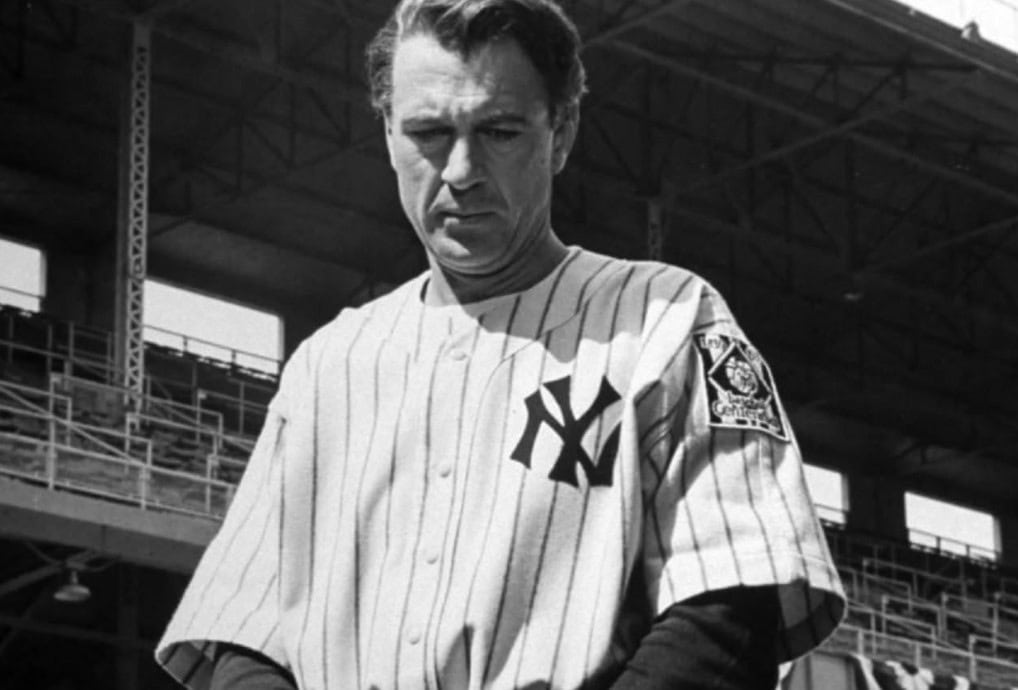
- Delivered by: Gary Cooper playing Lou Gehrig
- Speech: “Luckiest man on the face of the Earth”
Famous New York Yankee, Lou Gehrig, faced with an untimely retirement following a devastating diagnosis of ALS, delivered one of the most iconic speeches in sports history at Yankee Stadium on July 4, 1939. Despite his condition, Gehrig proclaimed himself “the luckiest man on the face of the Earth” during this emotional moment. His heartfelt words were immortalized in the film “Pride of the Yankees,” portrayed by Gary Cooper, a year after Gehrig’s death in 1941 at the age of 37.
Wilson (1944)

- Delivered by: Alexander Knox playing Woodrow Wilson
- Speech: Declaration of war against Germany
The 1944 Technicolor biopic of President Woodrow Wilson, produced by Daryl F. Zanuck, won the Academy Award for Best Original Screenplay. Among its most memorables is actor Alexander Knox’s delivery of Wilson’s 1917 speech to Congress, declaring war on Germany. Knox captures the speech with sincerity, expressing Wilson’s sentiment of it being a “distressing and oppressive duty…which I have performed in thus addressing you.”
Patton (1970)
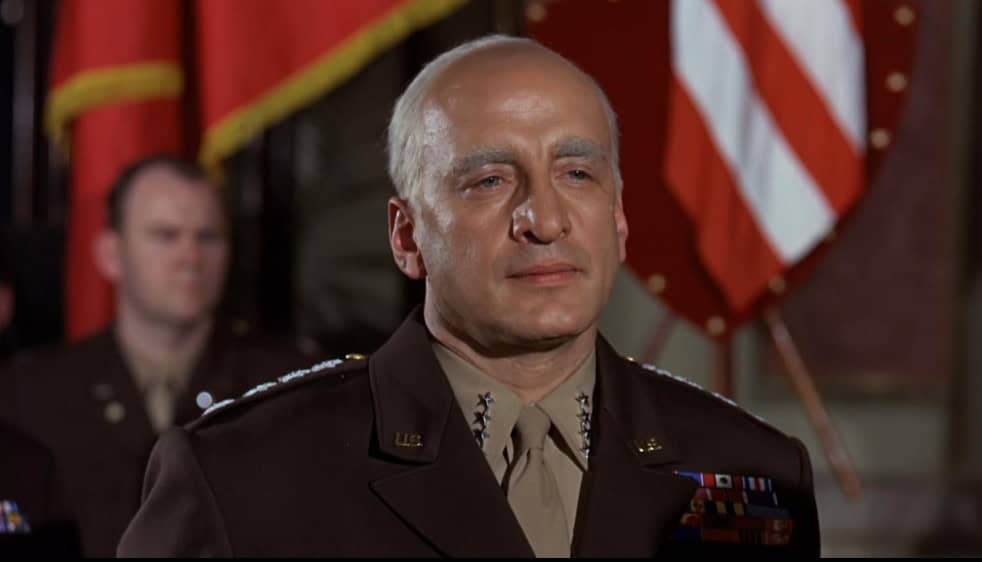
- Delivered by: George C. Scott playing George Patton
- Speech: Rallying the troops before the invasion of France
One of the most enduring scenes in film history comes from the opening of the 1970 film “Patton,” where George C. Scott, portraying U.S. General George S. Patton, addresses troops against the backdrop of a giant American flag during World War II. In his speech, he emphasizes the significance of examplary leadership and the necessity of a team effort needed to defeat the enemy. This is a shorter (and less explicit) version of Patton’s actual address to the Third Army in 1944, prior to the Allied invasion of France.
Eleanor and Franklin: The White House Years (1977)
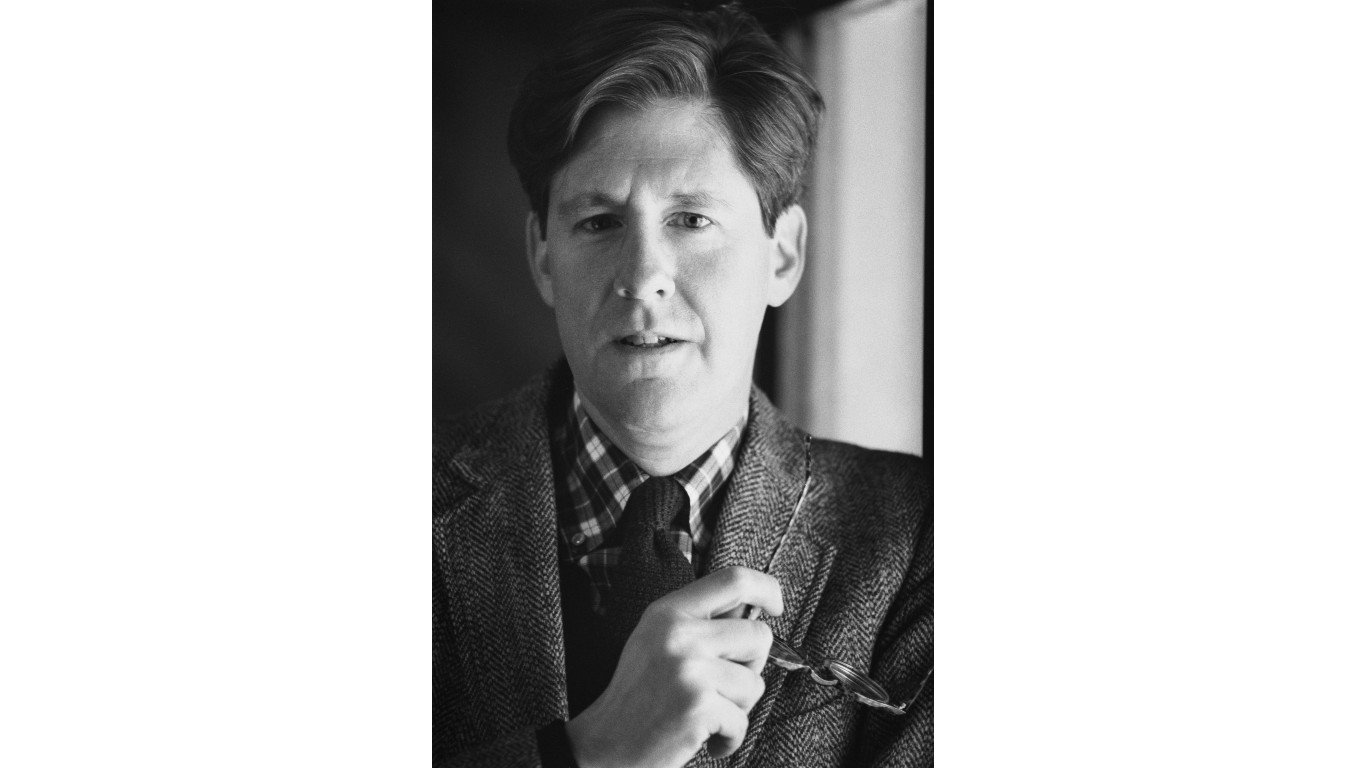
- Delivered by: Edward Hermann playing Franklin Roosevelt
- Speech: “The only thing we have to fear is fear itself”
President Franklin Roosevelt’s most renowned quote, “The only thing we have to fear is fear itself,” was delivered during his inaugural address in 1933. This moment was portrayed by Edward Hermann, who became known for his portrayal of FDR, in the 1977 television film “Eleanor and Franklin: The White House Years,” which followed the earlier movie “Eleanor and Franklin: The Early Years.”
MacArthur (1977)
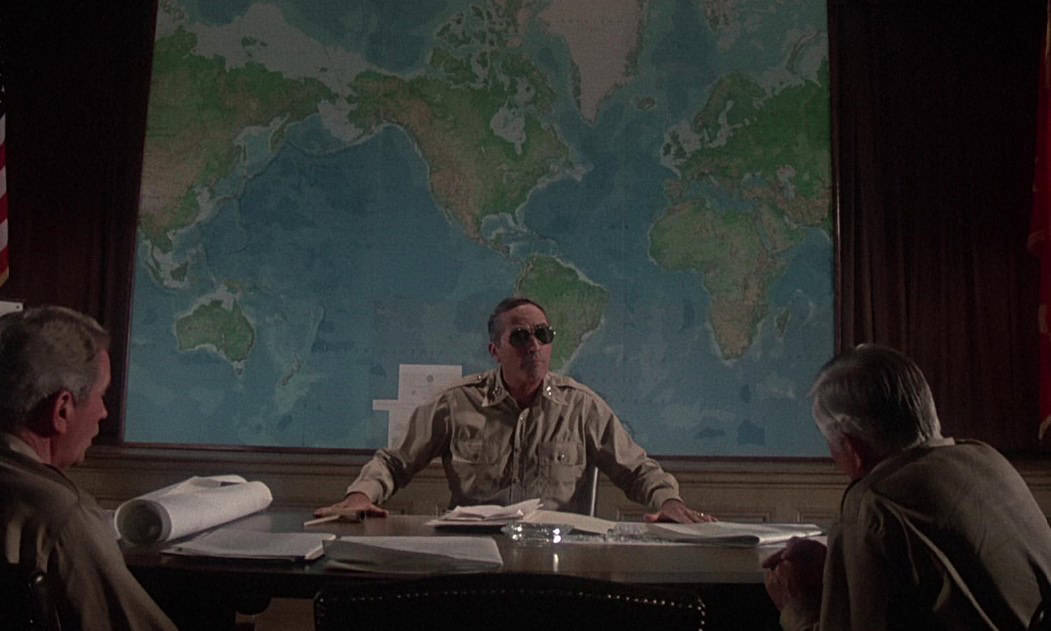
- Delivered by: Gregory Peck playing Douglas MacArthur
- Speech: “Duty, honor, country”
Gregory Peck took on the role of World War II General of the Army Douglas MacArthur in this film, which received mixed reviews. Peck’s portrayal was praised, however, particularly his rendition of MacArthur’s famous 1962 address to West Point cadets, praising the principles of “duty, honor, country.”
Gandhi (1982)

- Delivered by: Ben Kingsley playing Mahatma Gandhi
- Speech: A future vision for South Africa
“Gandhi,” a blockbuster of the 1980’s, captivated audiences around the world and received eight Academy Awards, including Best Picture, Best Director, and Best Actor – for Ben Kingsley, in the title role. In a key moment early in the film, Gandhi initiates a non-violent protest movement advocating for the rights of Indians in South Africa. His memorable speech underscores the equality of Indians as British subjects, deserving of the same rights as whites.
Kennedy (1983)

- Delivered by: Martin Sheen playing President John F. Kennedy
- Speech: “The torch has been passed”
In the five-part 1983 NBC miniseries, “Kennedy,” Martin Sheen starred as President John F. Kennedy. One of the standout moments of the series happens during Kennedy’s inaugural address, where he delivers the legendary lines: “Let the word go forth from this time and place, to friend and foe alike, that the torch has been passed to a new generation of Americans, born in this century, tempered by war, disciplined by a hard and bitter peace, proud of our ancient heritage, and unwilling to witness or permit the slow undoing of those human rights to which this nation has always been committed, and to which we are committed today at home and around the world.”
George Washington II: The Forging of a Nation (1986)

- Delivered by: Barry Bostwick playing George Washington
- Speech: Farewell address
Barry Bostwick took on the role George Washington in both the 1984 made-for-TV movie “George Washington” and its 1986 sequel. While the film itself didn’t fare well with critics, Bostwick’s performance was praised, particularly for his portrayal of Washington’s poignant farewell address. This speech, written as a letter to his “friends and fellow-citizens,” marked his departure from public service after retirement.
The Civil War (1990)
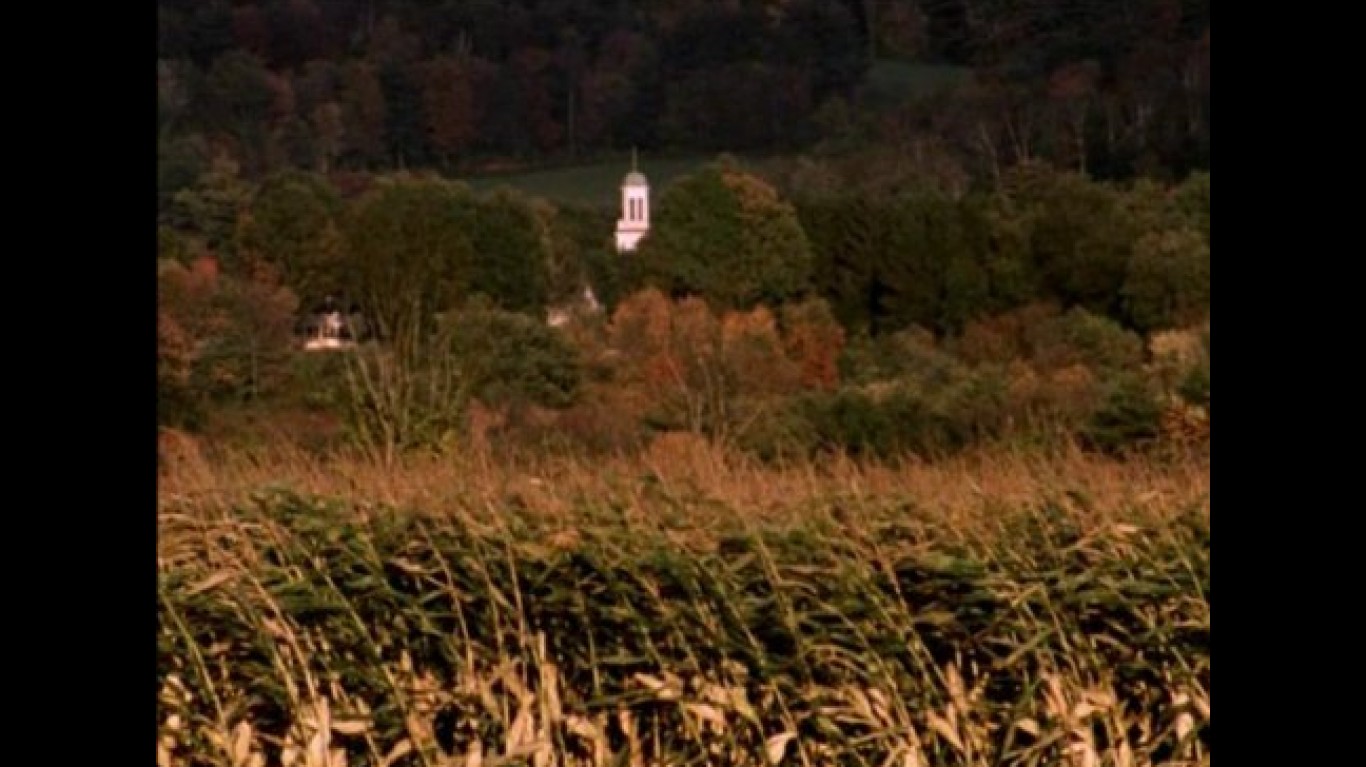
- Delivered by: Sam Waterston playing Abraham Lincoln
- Speech: Gettysburg Address
Ken Burns’ 1990 documentary miniseries “The Civil War” is celebrated as a groundbreaking masterpiece. It educated millions of Americans about the war, using Civil War photos and renowned actors like Waterston, Jason Robards, Morgan Freeman, and Jeremy Irons for voice-over narration of historical quotes. Waterston’s redition of Lincoln’s Gettysburg Address stands out as a highlight of the series.
Malcolm X (1992)
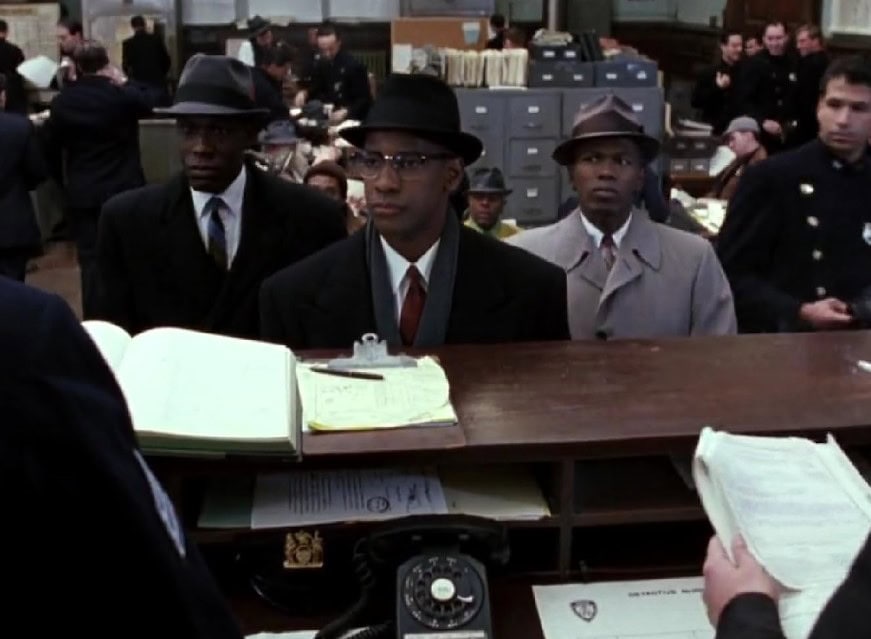
- Delivered by: Denzel Washington playing Malcolm X
- Speech: “Hoodwinked”
Denzel Washington earned widespread praise and an Oscar nomination for his role as African-American activist Malcolm X in Spike Lee’s 1992 film of the same name. One of the film’s most memorable moments is when Malcolm delivers a powerful address to the residents of Harlem, declaring passionately, “Every election year these politicians are sent up here to pacify us!… I say and I say it again, ya been had! Ya been took! Ya been hoodwinked!”
Nixon (1995)

- Delivered by: Anthony Hopkins playing Richard Nixon
- Speech: “We’re gonna keep it” and “You won’t have Nixon to kick around anymore”
Anthony Hopkins delivers an unforgettable, Oscar-winning performance as President Richard Nixon in y Oliver Stone’s 1995 film “Nixon. The movies features flashbacks of two of Nixon’s most famous speeches, expertly rendered by Hopkins: his 1952 “Checkers” speech, where he defended himself against accusations of misusing political funds, and admitted his intention to keep the gift of a cocker spaniel named Checkers, and his bitter 1962 concession following his loss in the California gubernatorial election to Edmund “Pat” Brown, famously stating to the the press, “You won’t have Nixon to kick around anymore.”
Rough Riders (1997)
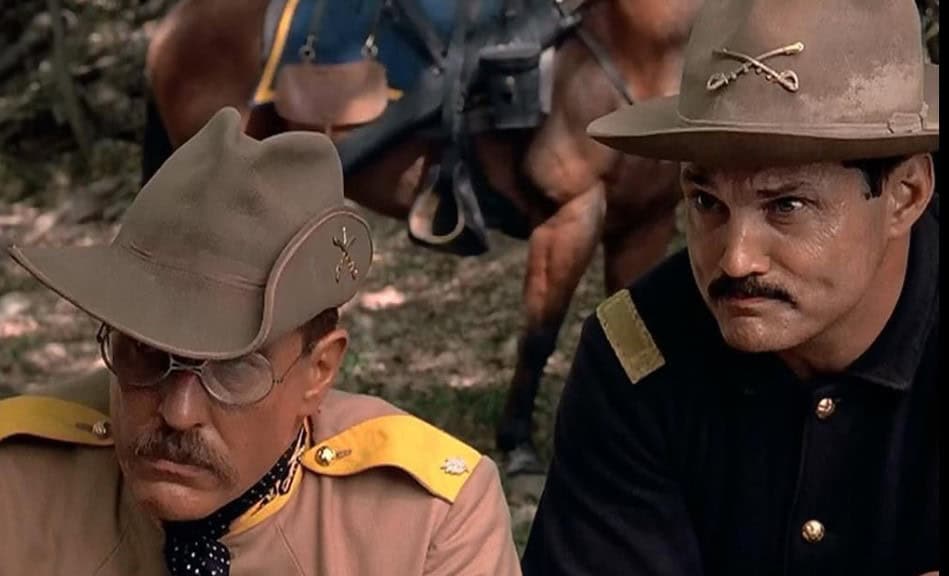
- Delivered by: Tom Berenger playing Theodore Roosevelt
- Speech: Speech to the Naval War College
“Rough Riders,” a 1997 TNT miniseries, chronicles the legendary volunteer cavalry unit led by future President Theodore Roosevelt. The series shows their pivotal role in the Battle of San Juan Hill during the Spanish-American War. Tom Berenger portrays Roosevelt, delivering a remarkable speech at the Naval War College in Newport, Rhode Island, in 1897. “Preparation for war is the surest guaranty for peace,” he declared.
Pearl Harbor (2001)
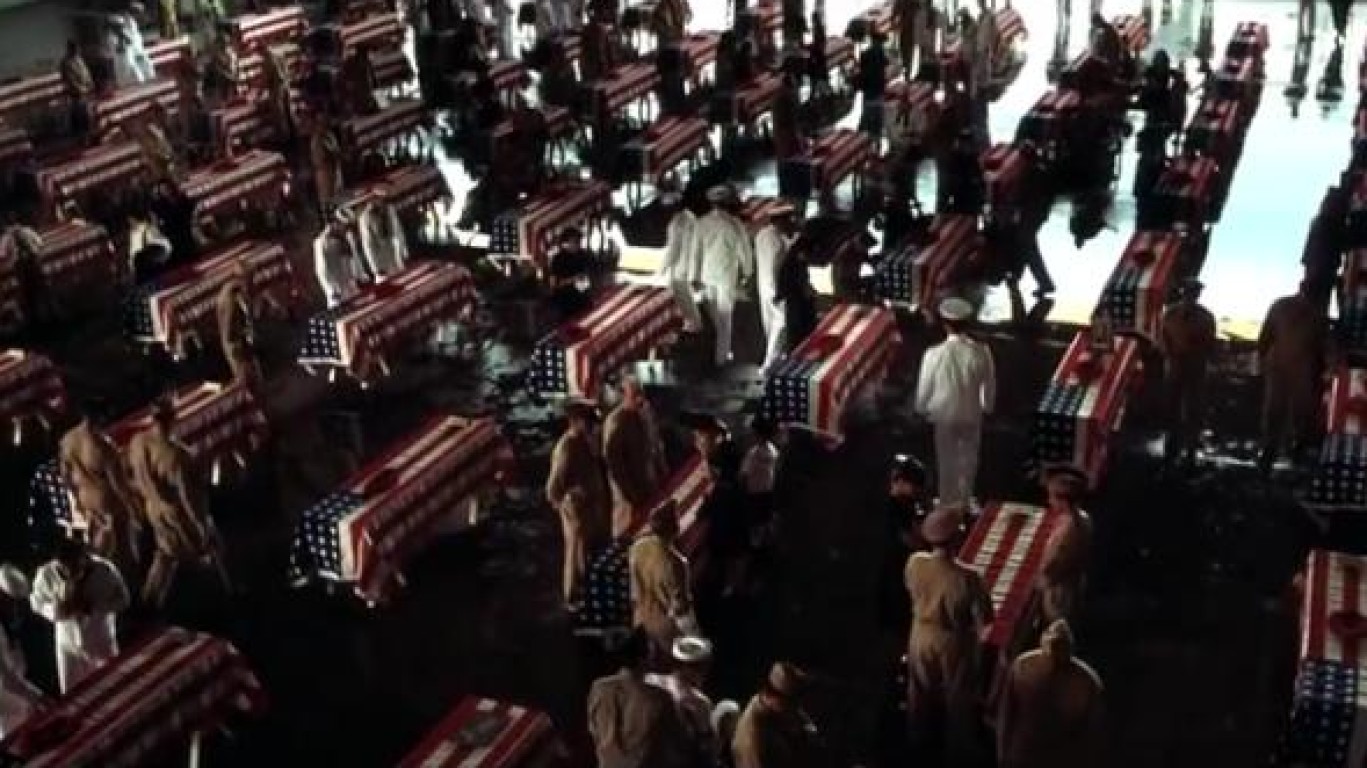
- Delivered by: Jon Voight playing Franklin Roosevelt
- Speech: Pearl Harbor address to the nation
“Pearl Harbor,” released in 2001, in the signatures style of director Michael Bay, blends romance and war in a cinematic spectacle. Among the film’s bombastic scenes, a particularly powerful moment comes following the Japanexe attack on Pearl Harbor. Jon Voight delivers a dramatic portrayal of President Roosevelt, giving his classic address to the nation. He solemnly declares December 7, 1941, as “a date which will live in infamy” and urges Congress to declare war on Japan.
The King’s Speech (2010)
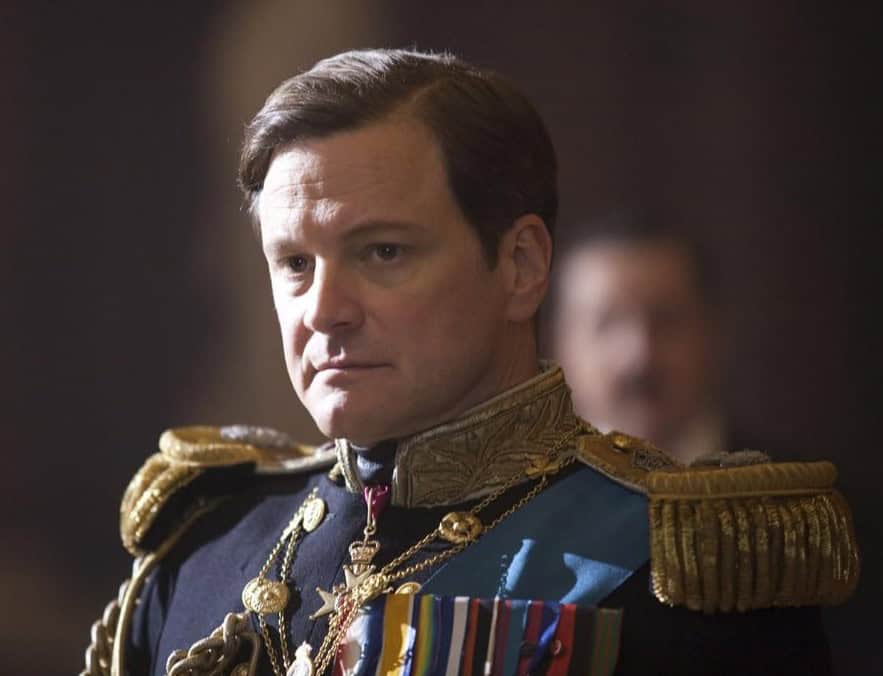
- Delivered by: Colin Firth playing King George VI
- Speech: Declaration of war on Germany
In the 2010 film “The King’s Speech,” Colin Firth portrays Britain’s King George VI, who struggles with a speech impediment that makes it challenging to speak to crowds, a crucial duty of a monarch. When he must deliver a speech declaring war on Germany, a striking moment during his reign, and successfully rises to the challenge, it stands out as one of the film’s most touching scenes.
The Iron Lady (2011)
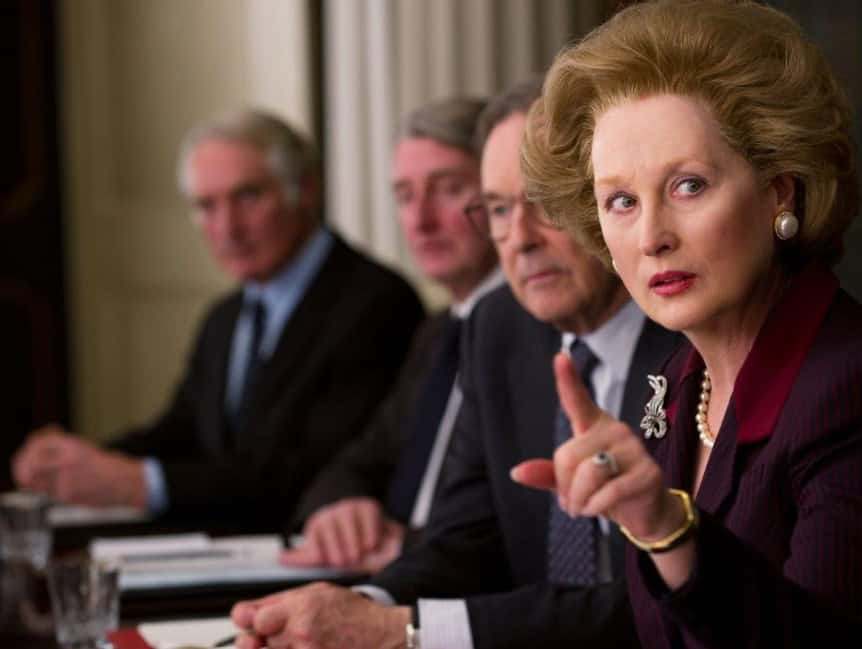
- Delivered by: Meryl Streep playing Margaret Thatcher
- Speech: “I am very pleased with my promotion to Prime Minister”
Meryl Streep won a Best Actress Oscar for her towering performance as Margaret Thatcher, the longest-serving U.K. Prime Minister of the 20th century and first woman to hold the office. The film received mixed reviews, but Streep’s performance was praised, especially in scenes where she gives powerful speeches, such as the one she gave to the Conservative Party Conference when starting her term as PM in 1979.
Lincoln (2012)

- Delivered by: Daniel Day-Lewis playing Abraham Lincoln
- Speech:“With malice toward none”
Daniel Day-Lewis’s Oscar-winning portrayal of President Lincoln in Steven Spielberg’s “Lincoln” is considered one of the greatest depictions ever of the iconic leader on screen. The movie depicts Lincoln’s efforts in his final months of his life to get the 13th Amendment passed, which would abolish slavery. In the film’s moving final scene, following his assassination, there is a flashback to his Second Inaugural Address, where he delivers the famous lines, “With malice toward none, with charity for all…”
Killing Kennedy (2013)
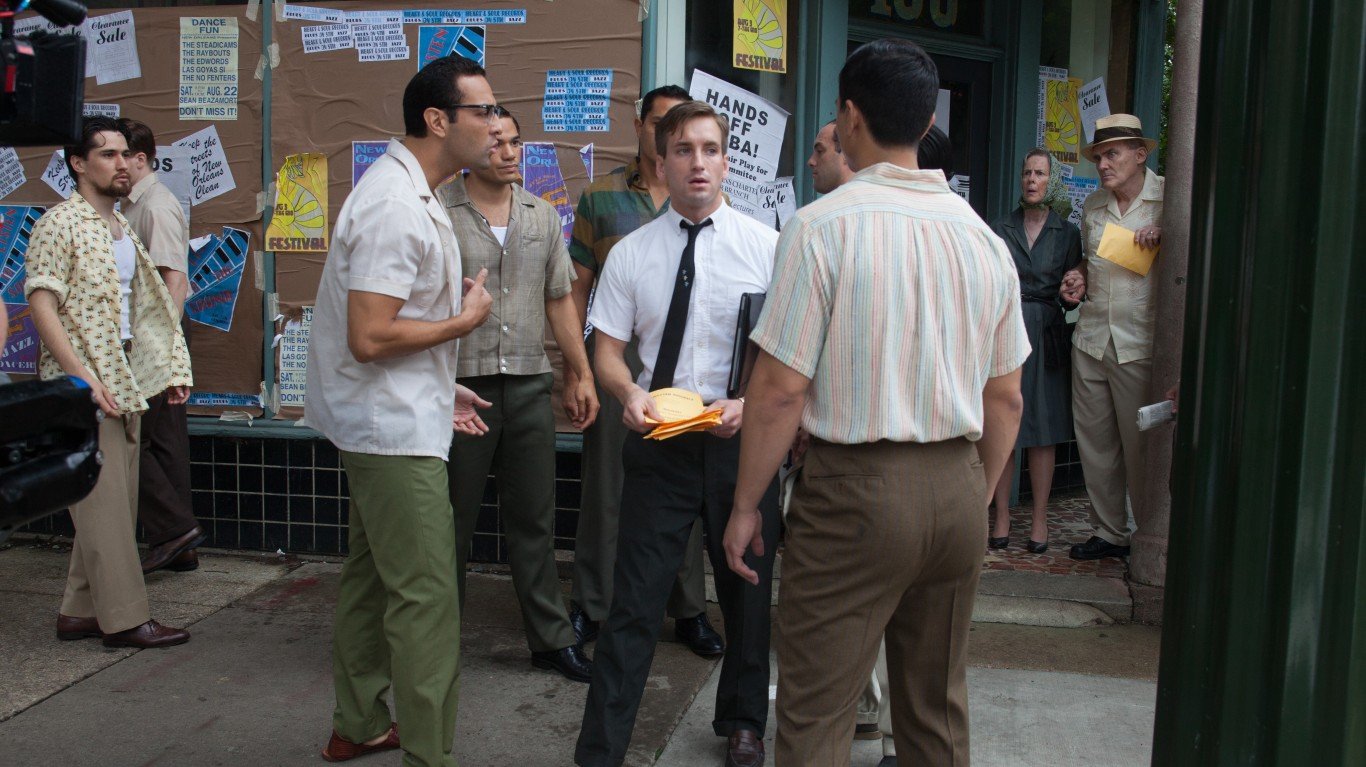
- Delivered by: Rob Lowe playing President John F. Kennedy
- Speech: Cuban missile crisis speech
The 2013 National Geographic Channel movie “Killing Kennedy,” adapted from Bill O’Reilly’s non-fiction book, starred Rob Lowe as JFK. The film chronicles Kennedy’s presidency and showcases a compelling speech he gave during the Cuban Missile Crisis, probably the most intense period of his administration. In that crucial moment, Kennedy pledged, “Our goal is not the victory of might, but the vindication of right.”
Selma (2014)

- Delivered by: Tom Wilkinson playing President Lyndon Johnson
- Speech: Speech in wake of violence in Selma – “We shall overcome”
Shortly after Lyndon Johnson’s assumed the presidency, civil rights activists faced police brutality while crossing the Edmund Pettus Bridge in Selma, Alabama, to protest voter suppression. In response, Johnson delivered a powerful address to Congress advocating for a voting rights bill. Known officially as “The American Promise,” but widely recalled as “We Shall Overcome,” borrowing from a renowned civil rights anthem, the speech was recreated by Tom Wilkinson in Ava DuVernay’s film. It drew an audience of over 70 million Americans and is still considered Johnson’s greatest speech.
Suffragette (2015)
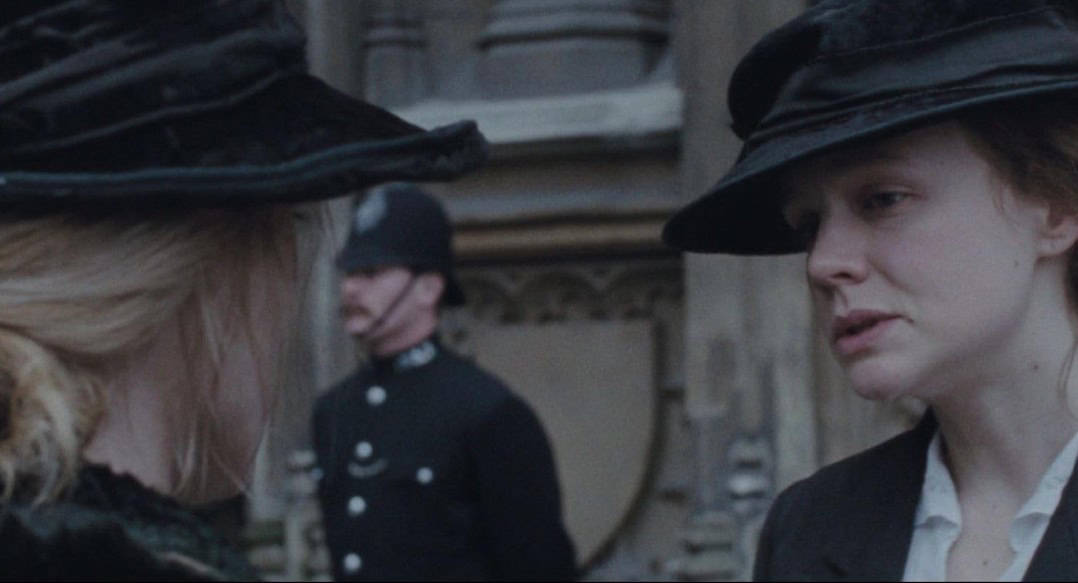
- Delivered by: Meryl Streep playing Emmeline Pankhurst
- Speech: “I incite this meeting”
Released in 2015, “Suffragette” is a historical drama chronicling the struggle for women’s suffrage in the United Kingdom. Meryl Streep stars as Emmeline Pankhurst, the influential political activist who organized the movement. The film highlights a famous 1912 speech given by Pankhurst at Royal Albert Hall after being released from prison, in which she famously declares, “I incite this meeting to rebellion! Be militant in your own way…”
The Crown (2016)
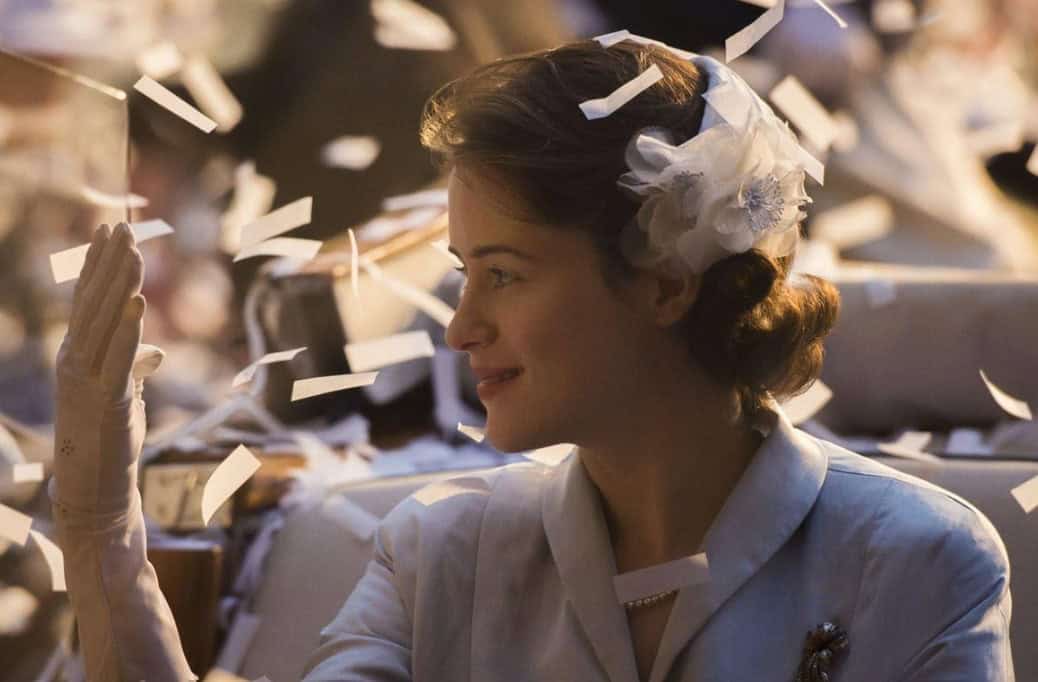
- Delivered by: Clarie Foy playing Queen Elizabeth II
- Speech: A promise to the Commonwealth
In a memorable scene captured in season four of Netflix’s “The Crown,” Claire Foy revisits her role as Queen Elizabeth II for a flashback to her 21st birthday speech. Although she was no longer playing the queen, Foy delivers the memorable speech where she famously dedicated her life to service to the Commonwealth nations. She proclaimed, “I declare before you all that my whole life, whether it be long or short, shall be devoted to your service and the service of our great imperial family to which we all belong.”
The Crown (2016)
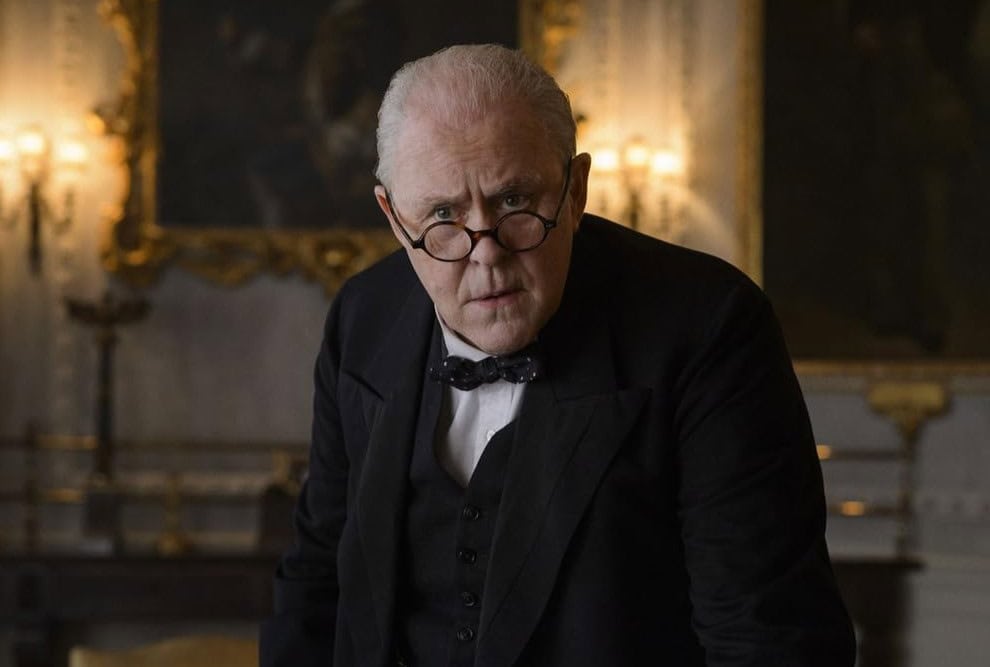
- Delivered by: John Lithgow playing Winston Churchill
- Speech: Announcement of death of King George VI
In Netflix’s “The Crown,” John Lithgow delivers a remarkable performance as Winston Churchill, capturing the essence of the Prime Minister’s character. He did an admirable job of recreating one of the Churchill’s most moving speeches, delivered in 1952 as a eulogy for King George VI, where he expresses unwavering support for the new queen.
The Crown (2016)
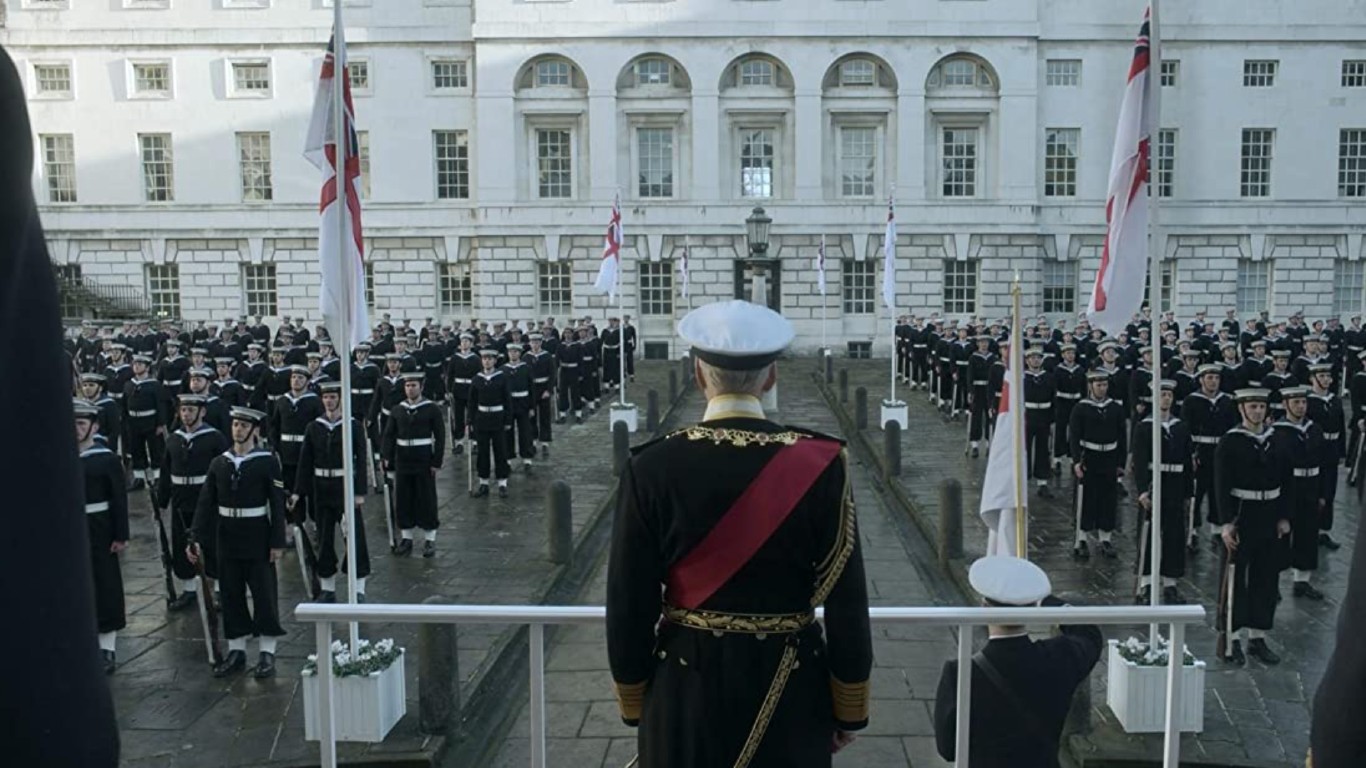
- Delivered by: Alex Jennings playing King Edward VIII
- Speech: The abdication of King Edward VIII
King Edward VIII famously abdicated the throne in 1936, after less than a year as king, to marry American socialite Wallis Simpson, a divorcée deemed unacceptable as the monarch’s wife. In a globally broadcast address by the BBC, he explained, “I have found it impossible to carry the heavy burden of responsibility and to discharge my duties as king as I would wish to do without the help and support of the woman I love.” This speech is depicted in episode three of the first season of Netflix’s “The Crown,” with actor Alex Jennings portraying King Edward.
Darkest Hour (2017)
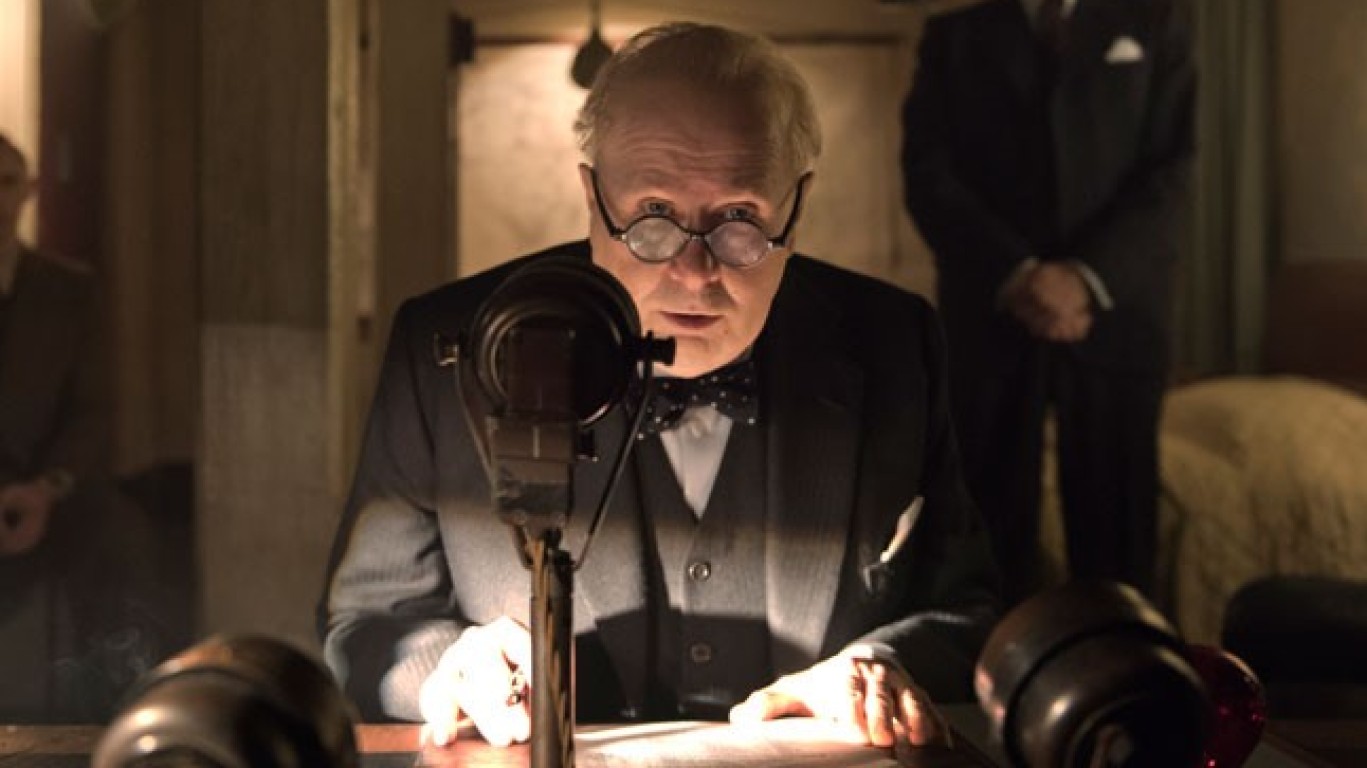
- Delivered by: Gary Oldman playing Winston Churchill
- Speech: “We shall fight on the beaches”
In this portrayal of Winston Churchill’s early years as prime minister during World War II, Gary Oldman stars as the British leader. At the film’s climax, as Germany prepares to invade Britain, Churchill delivers one of his most memorable and famous speeches to Parliament, dramatically declaring, “We shall fight on the beaches, we shall fight on the landing grounds, we shall fight in the fields and in the streets, we shall fight in the hills; we shall never surrender.”
